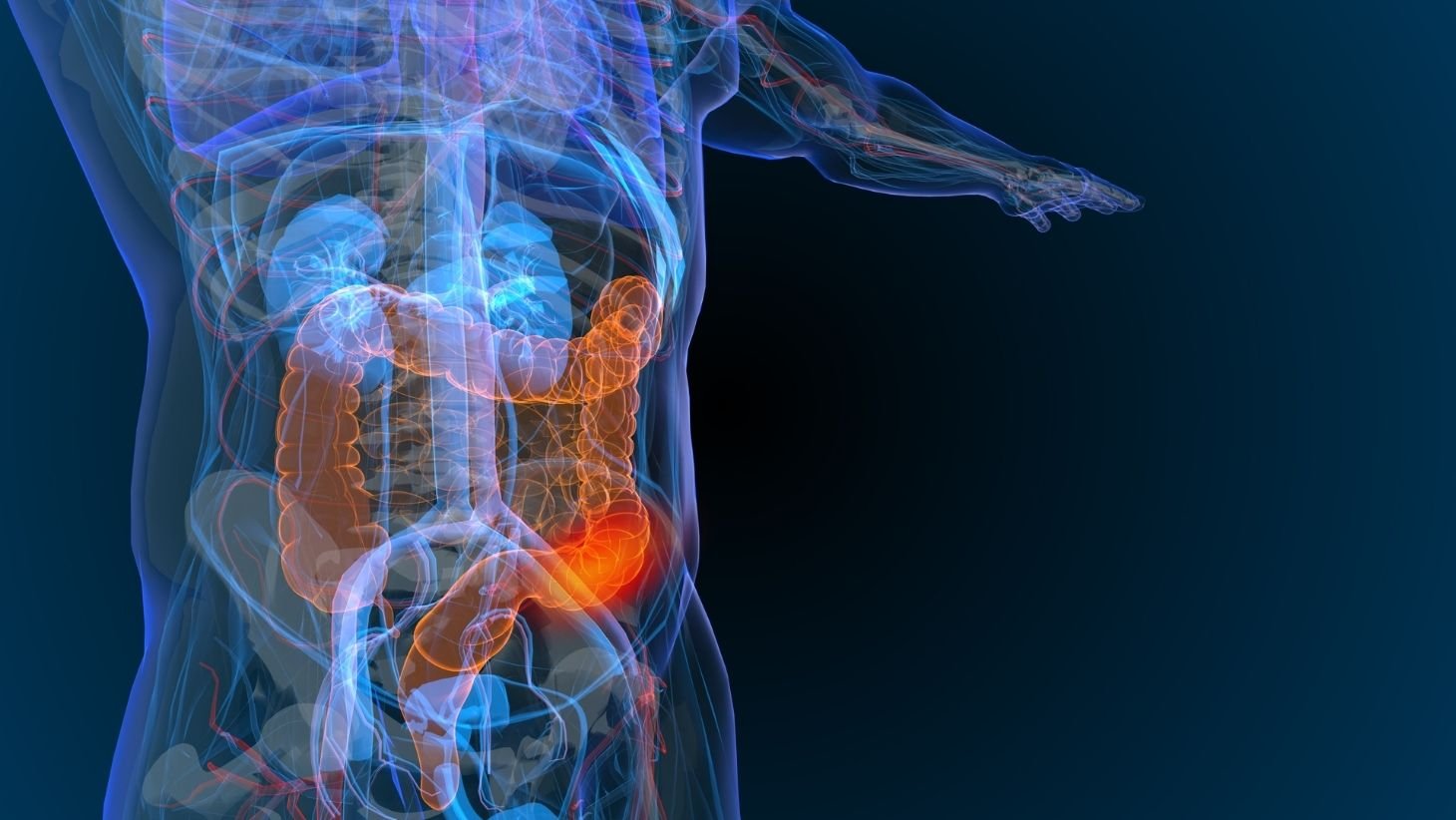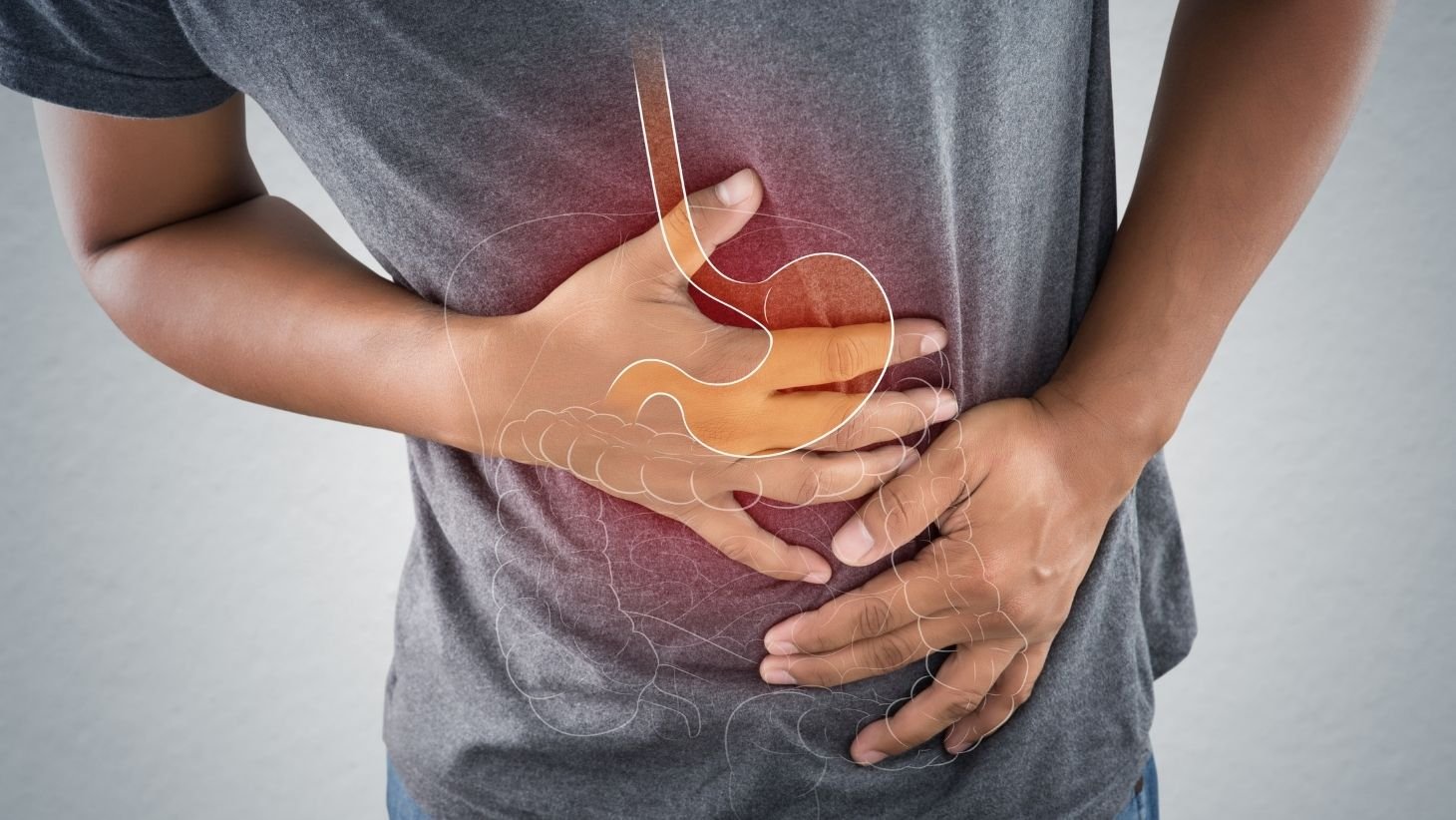Heartburn after eating is quite common. When it starts to happen regularly, this is a sign of a condition called acid reflux. Other than simply being painful and making it hard to sleep at night, you may be wondering if acid reflux is related to gastrointestinal (GI) cancer including stomach cancer and esophageal cancer. Does a build-up of acid in the esophagus cause cancer over time?
What is Acid Reflux?
The food we eat passes through the esophagus and into the stomach. The lower end of the esophagus has a ring of muscles called the lower esophageal sphincter (LES). The function of a healthy LES is to control the movement of food between the esophagus and the stomach. Once food has moved into the stomach, the LES is supposed to keep it there for digestion.
When the LES is weak, it allows food and acidic stomach juices to flow back into the esophagus. This condition is called acid reflux. Acid reflux causes heartburn, a burning sensation in the lower esophagus, as well as a few other uncomfortable symptoms, such as uncontrolled burping and regurgitation. Occasional acid reflux alone does not put you at an increased risk of developing cancer.
GERD: When Acid Reflux Becomes Chronic
If you experience acid reflux at least twice a week over several weeks, doctors may start to consider your acid reflux as a chronic issue. When acid reflux becomes chronic, your doctor may reclassify the acid reflux as a condition called GERD or Gastroesophageal Reflux Disease. GERD includes regular heartburn plus:
- Chest pain
- Difficulty swallowing
- Regurgitation of food or liquids
- The feeling of a lump in your throat
If you have any of these symptoms, it may be a sign of GERD, but it is important to discuss them with your doctor.
Does GERD Pose a Cancer Risk?
Unlike the tough stomach lining, that’s regularly exposed to acid, the esophageal tissue is sensitive, and regular exposure to acid can cause damage to the cells. This damage, over time, increases the risk of developing esophageal cancer, a type of gastrointestinal (GI) cancer.
What is Barrett’s Esophagus?
For some people, GERD develops into a condition called Barrett’s esophagus. This is a change in the cells of the esophagus to be more like intestinal lining tissue. In other words, the squamous cells of the esophagus are replaced by gland cells.
Does Barrett’s Esophagus Increase Cancer Risk?
Barrett’s esophagus increases the risk of esophageal cancer. Over time, as the tissue changes into glandular tissue, abnormal growth of cells can begin, called dysplasia. At this point, the cells are not cancerous, but they are more likely to turn into cancer over time than other cells.
Dysplasia can be high or low grade, based on how regularly the cells appear under the microscope. High-grade dysplasia is linked to the highest risk of esophageal cancer.
If you have been diagnosed with Barrett’s esophagus, your gastroenterologist may recommend routine cancer screenings and imaging to detect cancer, if it develops, as early as possible.
Not everyone with GERD or Barrett’s esophagus will receive a cancer diagnosis.
Can Acid Reflux Medications Increase the Risk of Cancer?
In 2018, a study conducted in Sweden believed that Proton Pump Inhibitors (PPIs) increase the risk of gastric cancer when used long-term. Proton Pump Inhibitors (PPIs) are commonly used to treat acid reflux and GERD. This type of medicine essentially reduces the amount of stomach acid that can be produced, reducing the likelihood that it will back up into the esophagus. In recent years, experts have been raising questions about the safety of drugs in the long term.
When there isn’t enough acid, G-cells are triggered. This leads to an increase in gastrin production. Unfortunately, gastrin can lead to the growth of gastrointestinal tumors. With time the tumors may turn malignant and cause stomach, esophageal, or other GI cancers.
How to Reduce Your Risk of GI Cancer if You Have GERD or Barrett’s Esophagus
Patients with acid reflux and GERD can opt for other ways to keep the symptoms in control. Lifestyle changes like diet control, exercise, quitting tobacco, and reducing alcohol use are a few ways to avoid acid reflux.
If you have a weak LES, there may not be a lifestyle change that can fix it, and surgery is an option.
GI Cancer Care at Willamette Valley Cancer Institute
It’s important to understand your risk for developing GI cancers, including esophageal, stomach, colon, liver, and pancreatic cancers. While having a condition like GERD or Barrett’s esophagus does NOT guarantee you’ll develop cancer in the future, it’s important to be aware of your risks and how you can lower them. Talk to your primary care doctor or gastroenterologist about any concerns you have and learn to identify the signs and symptoms of esophageal cancer so you can be aware of anything that may indicate a problem.
If you or a loved one receives a GI cancer diagnosis, the specialists at Willamette Valley Cancer Institute can provide a treatment plan specific to your type of cancer, stage, and other factors that help define the best plan for you.




